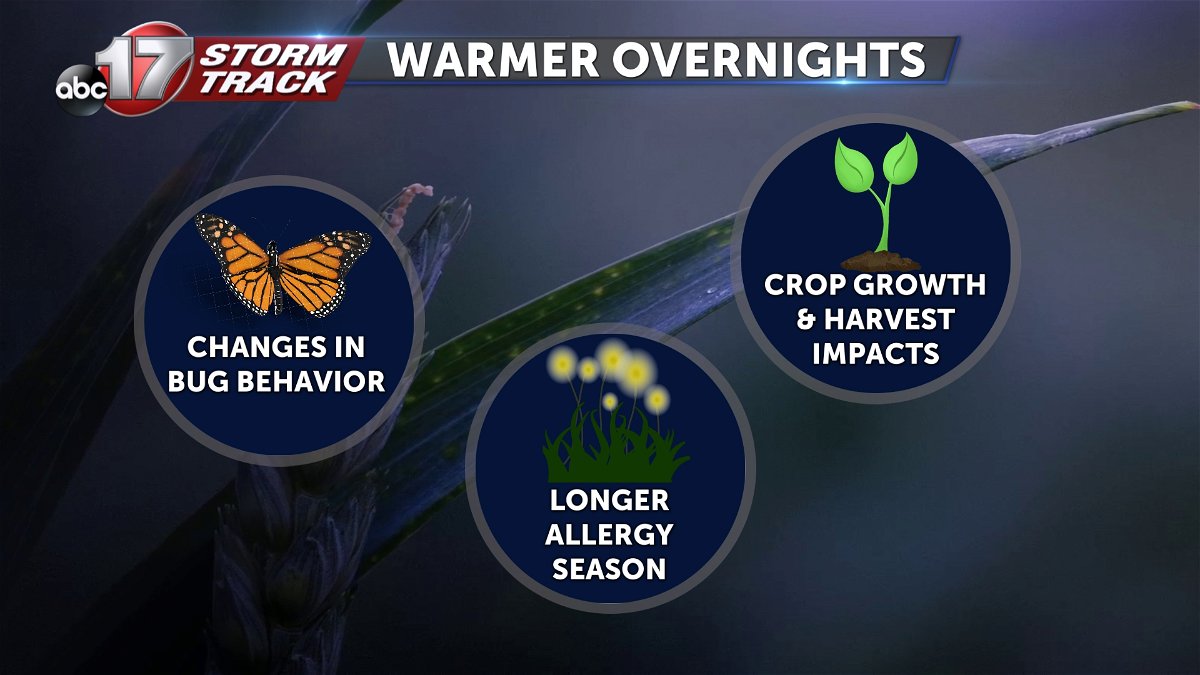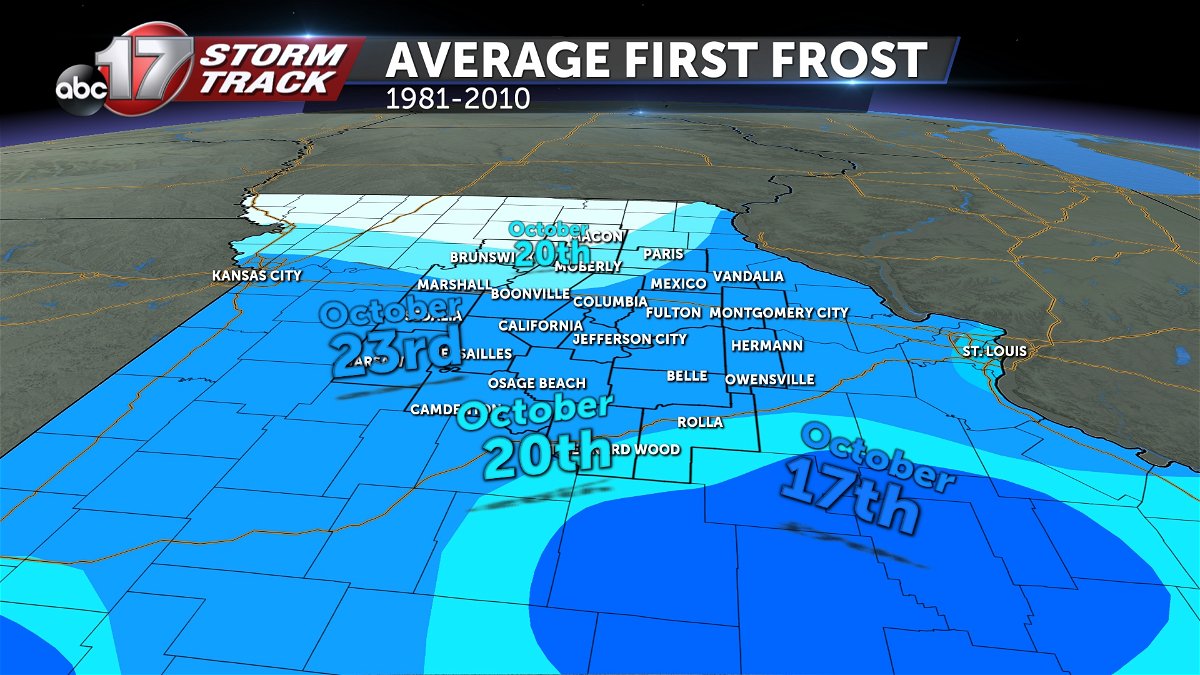Climate Matters: Warmer nights have impacts on people and the environment
Record-breaking heat has been a common sight in recent headlines as Earth experienced its hottest summer globally over the past few months. Fall has also proven to be exceptionally hot as even some of the coolest days manage to remain above average. Much of the conversation on heat records circulates around abnormal daytime temperatures, but nights are warming sharply as well.
Overnight warming has been a trend for decades nationwide since the late 20th century at all times of the year. And nights aren't just heating up, they're warming at a faster pace than the day. In the summer, the U.S. has seen daytime highs rise by an average of 3.5 degrees per century since 1970; nights have warmed by 4.8 degrees in that same time. Winter is seeing even faster warming with highs rising 5.6 degrees and overnight lows climbing 6.1 degrees.

Warmer nights come with a host of impacts on not just the environment but everyday life for people. Water bodies, insects, plants, humans, and much of our day-to-day all see the effects of rising overnight temperatures. Invasive species of bugs that thrive in warmer climates can threaten previously cooler regions as they face less threat of cold that would typically be deadly. Even native insects are able to sustain higher populations from less die-off in the winter. Agriculture patterns change with warmer nights as planting and harvest seasons are expanded thanks to a greater window of freeze-free days during the year. But crops also see negative effects of warmer nights as plants respire (produce sugars) more than usual into the overnight. This strains carbon and water resources for some crops and is shown to reduce yields by over a quarter. Sensitive plants are affected as well; grapes that are used for winemaking can change in acidity in shifting climates, altering the taste of the resulting drink.

Humans will also notice more than just warmer overnight temperatures. Sleep patterns can be disrupted in a warmer climate as it is shown that people experience less deep sleep with a higher body temperature. And the changes in vegetation mentioned earlier can also affect us in unexpected ways. More time with temperatures above freezing allows many plants to persist and continue producing pollen at unusual times of year. Ragweed specifically can survive longer into the fall with warmer overnight temperatures and the U.S. has seen an increase of 11 days on average of more days above freezing, more time to keep that allergy medicine on hand.
